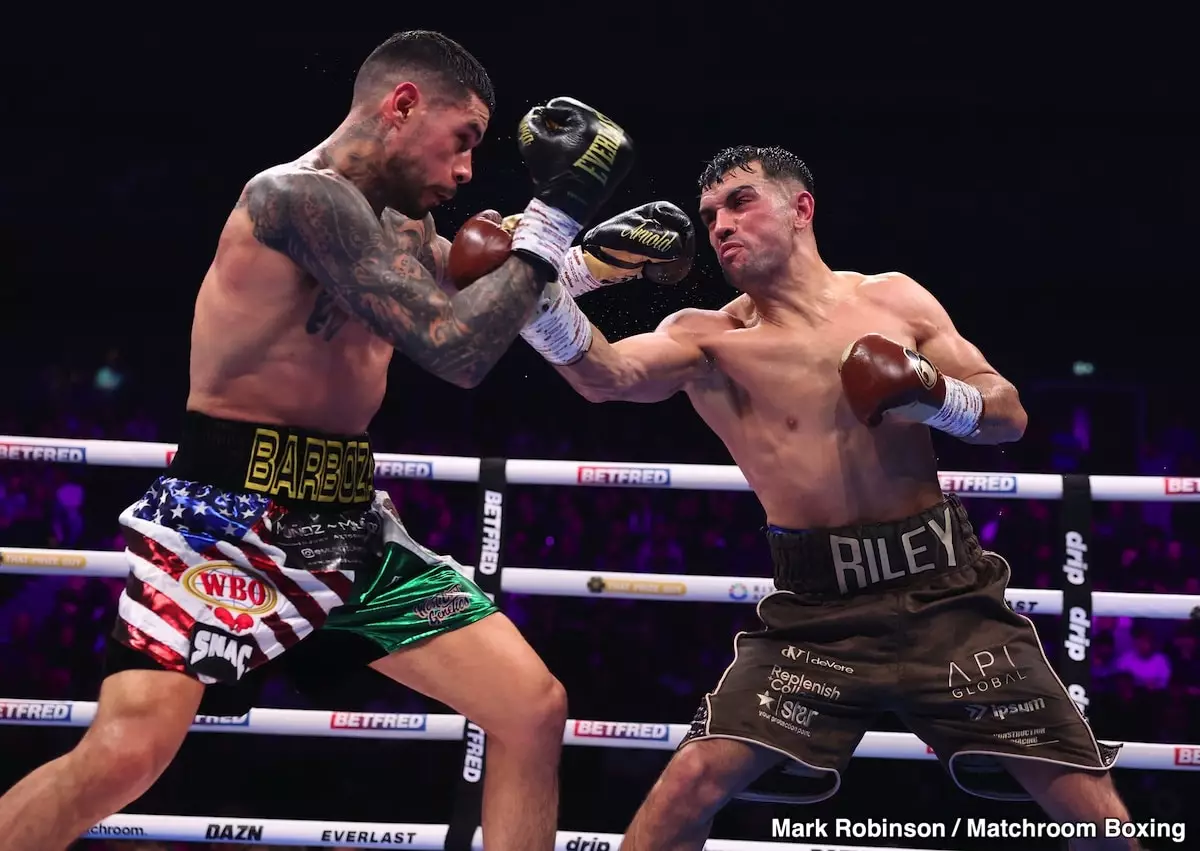Boxing, a sport renowned for its brutal elegance and storied history, continually pushes fighters and trainers to confront their beliefs about age, relevance, and longevity. The recent buzz surrounding Manny Pacquiao’s potential comeback at 46 underscores a fundamental tension in boxing: should legends hang up their gloves when the sport’s physical demands become increasingly unforgiving? Many critics, including former fighters turned trainers like Jamie Moore, express skepticism about Pacquiao’s return, emphasizing that the ring’s brutal reality often outpaces the passion of its aging warriors. Yet, beneath this skepticism lies a deeper debate about respect, opportunity, and the evolving nature of a sport that venerates its legends as much as it demands fresh blood.
Moore’s perspective is informed not just by a disdain for risk but by a nuanced understanding of the sport’s morality. As the trainer of Jack Catterall, Moore’s primary objective is guiding his fighter toward a world title—a goal that often requires navigating complex choices about who to face and when. If Pacquiao, at his age and stage, pulls off an upset against Mario Barrios, Moore admits that he would find himself “really on the fence.” This confession reveals boxing’s paradox: respecting a legend’s legacy while grappling with the dangerous realities of aging in the ring. Moore’s honesty exposes the emotional undercurrents that often get masked by promotional hype and fan fervor. It suggests that in boxing, ambition must be carefully balanced with prudence—especially when dealing with athletes like Pacquiao, whose longevity is as much about myth as it is about physical ability.
Respect vs. Ambition: The Ethical Dilemma for Trainers and Fighters
Moore’s candid admission also highlights a broader ethical dilemma faced by trainers and fighters alike. Is it fair—and responsible—to pit a legend against younger, perhaps more prime opponents, simply because the public craves nostalgia or marketing appeal? In Moore’s view, there’s a palpable discomfort in seeing Pacquiao, a fighter whose career exemplifies dedication and sacrifice, risking severe harm when his physical capabilities have diminished. The sport’s obsession with spectacle often clashes with the moral obligation to preserve a fighter’s health, especially when that fighter commands respect and admiration.
For Catterall, the prospect of sharing a ring with Pacquiao—an icon—would be undeniably thrilling. The allure of testing himself against greatness is a powerful motivator that can override caution, especially for a fighter still vying for recognition and validation. But Moore’s perspective underscores that such allure must be tempered with responsibility. To field such a fight at this juncture risks undermining the integrity of the sport and the safety of the fighters involved. In the grand tapestry of boxing, ego and commercial interests often overshadow caution, but discerning voices like Moore’s remind us that respect for the sport and the fighters’ well-being should be paramount.
The Future of Boxing: Legacy, Opportunity, and the New Wave
Assuming Pacquiao defeats Barrios—a significant “if”—he would likely target another lucrative fight, possibly against contenders like Gervonta Davis. This scenario exemplifies boxing’s obsession with legacy and money, often at the expense of fighter health and strategic wisdom. Yet, this also opens a door for younger fighters such as Jack Catterall, who embody the sport’s future—that relentless pursuit of growth and excellence. Catterall, a skilled southpaw with a solid record, represents the next generation eager to carve out their own legacy. His upcoming clash with Harlem Eubank promises to be an intriguing chapter in his career, emphasizing that meaningful opportunities are ultimately earned through perseverance and talent, not nostalgia.
What remains clear is that boxing’s landscape is shifting toward a more complex understanding of age and opportunity. Legends like Pacquiao continue to inspire, but their risks invite debate about the limits of ambition. Meanwhile, fighters like Catterall symbolize the sport’s potential for renewal, reminding us that the torch must be passed with respect and responsibility. The sport’s integrity hinges on recognizing that greatness can be measured not just by titles and fame, but also by the wisdom to know when to step back and the courage to pursue new horizons.
Boxing’s enduring power lies in its capacity to evolve—embracing its icons while fostering new talent. Judging by the debates, the sport is at a crossroads where respect for past heroes must intersect with a vision for future warriors. The choices made in these moments will define boxing not only as a sport but as a testament to resilience, both physical and moral, in an ever-changing landscape.


Leave a Reply